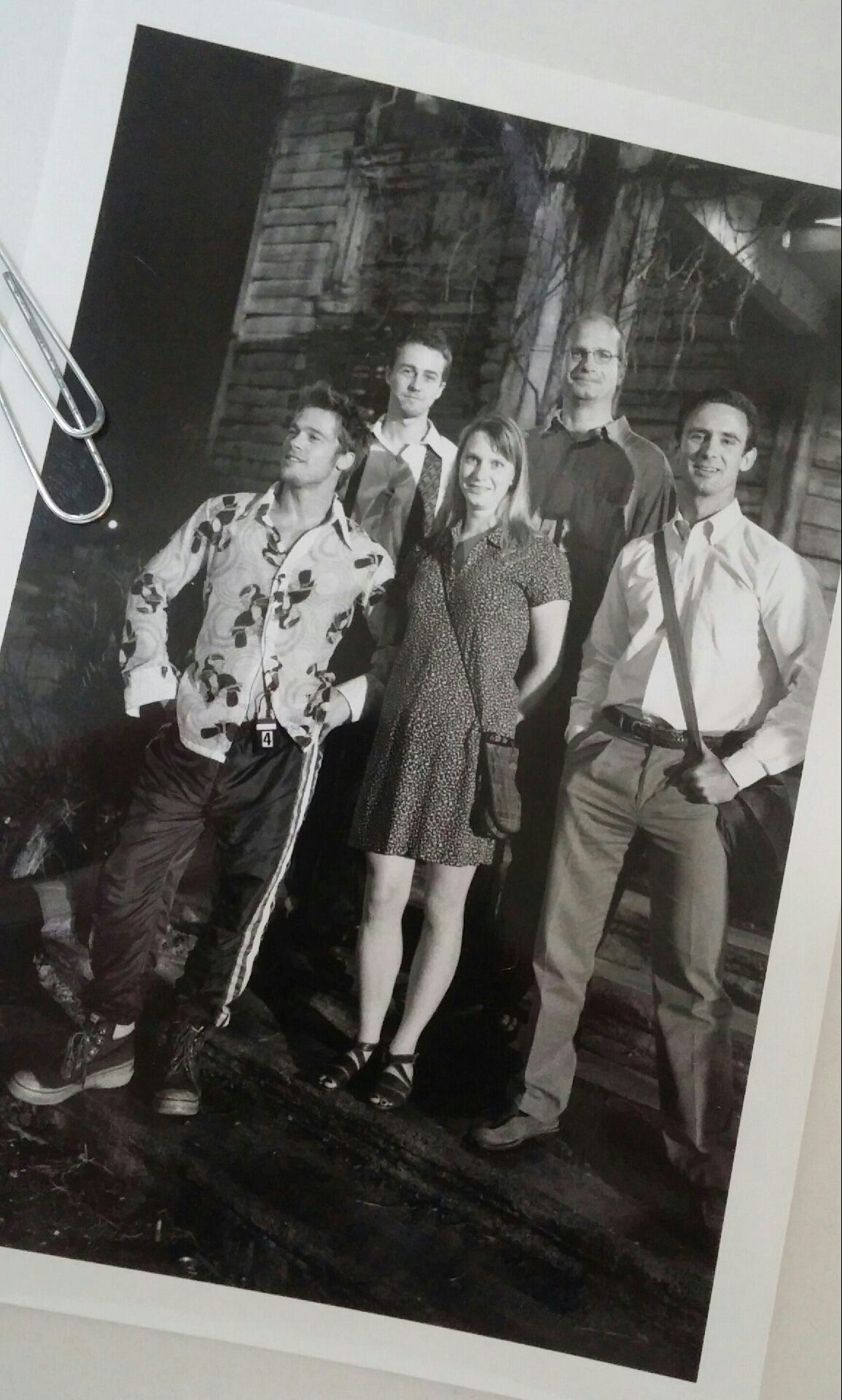On a flight back from Germany I sat beside a gem expert. A gemologist. My dream seatmate because he could tell me all the details of oiling emeralds. You see emeralds hold flaws, little cracks and hollows that refract the light differently than the solid portions of the gem. To hide these, jewelers soak the stones in an oil that has the same quality of refraction as an emerald. The oil fills the imperfections, and the gem looks flawless
Flawless for a while. Eventually the oil leaks away, making it necessary to re-oil your emeralds each year. When you consider how fur coats need to be glazed and re-glazed, and emeralds oiled and re-oiled, luxury goods begin to look like a huge pain. When I asked my gemologist about coral, he said, “I don’t do organics.” Coral, ivory and pearls are all “organics” apparently.
Thank you for such a wonderful first day, yesterday.
Somewhere high above Nova Scotia, he told me the good stuff.
He said how pawn shops accept diamond jewelry but seldom bother with the diamonds. The broker pries the stones loose and dumps them in a box and is free to melt down the precious metal and sell it. The collected stones are a mish-mash of colors, cuts, qualities. Brilliant or battered. Few pawnbrokers know which diamonds are good or bad so for decades they just pile up the loose stones, stashed in some cardboard box.
One day a would-be jeweler sent his sons around the nation to visit every pawn shop. Each son offered each broker a hundred bucks cash for each box of stones. After months of touring the sons came home with a combined mountain of diamonds that could be recut, polished, set and sold.
And that, per my gemologist1, is how The Shane Company got its start. It’s not a fact that the Shane people were quick to confirm. I intend no malice, here. So if anyone knows otherwise, please let me know. To me the story sounds pretty darned smart.
Besides, who am I to judge? In the 2011 history I Want My MTV by Rob Tannenbaum and Craig Marks, we see how music television built itself with free content. The videos had been around for years with no real use. In Europe these videos played in dance clubs so the simple availability of Brit pop videos probably created the New Wave music scene in the United States. Free videos filling all of those hours built a new media niche. It wasn’t until performing artists began to charge MTV for use of the videos that the network had to shift to producing its own reality programing. Thus ended the classic videos-only era.
All of this brings us to my friend, Ina, pictured above. After a job interview, she once told me she’d certainly be hired. When they’d asked about any special talents, she’d answered, “I have excellent blaming skills.”
Scott Adams could not have nailed corporate culture better. She got the job.
That’s a brand of brilliance we hear every day and leave on the table.
Another time Ina referred to her coworkers as her “air family” a riff on the pantomime of air guitar. These are just the quips I didn’t use in my fiction. Half of everything said by Marla Singer first came out of Ina’s mouth. If the most-clever things Scott Fitzgerald wrote first came out of Zelda’s mouth, my most clever memes were Ina’s throwaway one-liners.
She’d answered, “I have excellent blaming skills.”
Another friend worked for an airline pre-September 11th and told me how ticket agents never searched cremation urns. Passengers carrying such urns merely had to sign a form swearing nothing but ashes was inside. I heard this and I had my hijack scenario for Survivor.
At a Christmas party in 1994 at my boss’s boss’s house I met a woman who worked in a cosmetic surgery clinic, and she told me about “gleaning.” That’s the process of having your own fat sucked out and processed so it can be injected as collagen filler. Within days of that party I’d written that new anecdote into the raw beginnings of Fight Club.
I could go on and on. Such secondhand stories and factoids fill my books.
Steinbeck did this. He eavesdropped on strangers and collected. Winning the Pulitzer was the beginning of the end for him because he’d lost his anonymity and could no longer gather the best bits of people’s lives for his work. I wouldn’t exactly call this stealing. Not exactly. What’s to steal if you’re salvaging something otherwise lost to time and decay? In my experience people feel flattered to find their anecdote or their quip preserved in a piece of fiction. It moves them to know that someone was truly paying attention.
Guess who else gets rich by using free content. Only talk radio. Facebook. You Tube. Instagram. TikTok.
My point is that creative people draw from the world around them. It’s a lie to claim yourself as the source of all your ideas. My point is: It pays to listen. Find out what the person sitting next to you really knows, and learn something you can later -- sell. For now, go oil your emeralds.
This same man had started his career as the personal assistant of travel guru Rick Steves. But those are stories for another time. But excellent stories.








Thank you, Chuck. This content and your advice means the world to me. I have been writing since I was 8 (I am 33 now) and I still haven’t produced a finished book. My writing is stream of consciousness and I struggle with creating STORIES. I feel like the depth is lost when we start describing common things and I am too attached to everything being so profound that I stop myself from developing characters and events. What is your advice on transitioning from philosophical thoughts and prose to creating characters and stories? Thank you!
Something that’s shifted in our culture, and I think an argument could be made that social media was a driving force behind it, is that for a lot of people they choose not to listen. They just wait for their turn to talk.
Essentially, your post is all about listening, whether or not you’re the target audience. Our lives are a lot more isolating than we realize, and the pandemic has certainly condensed them further. I can’t wait to feel comfortable again to sit at a coffee shop and take in my surroundings. I’ll find some diamonds.